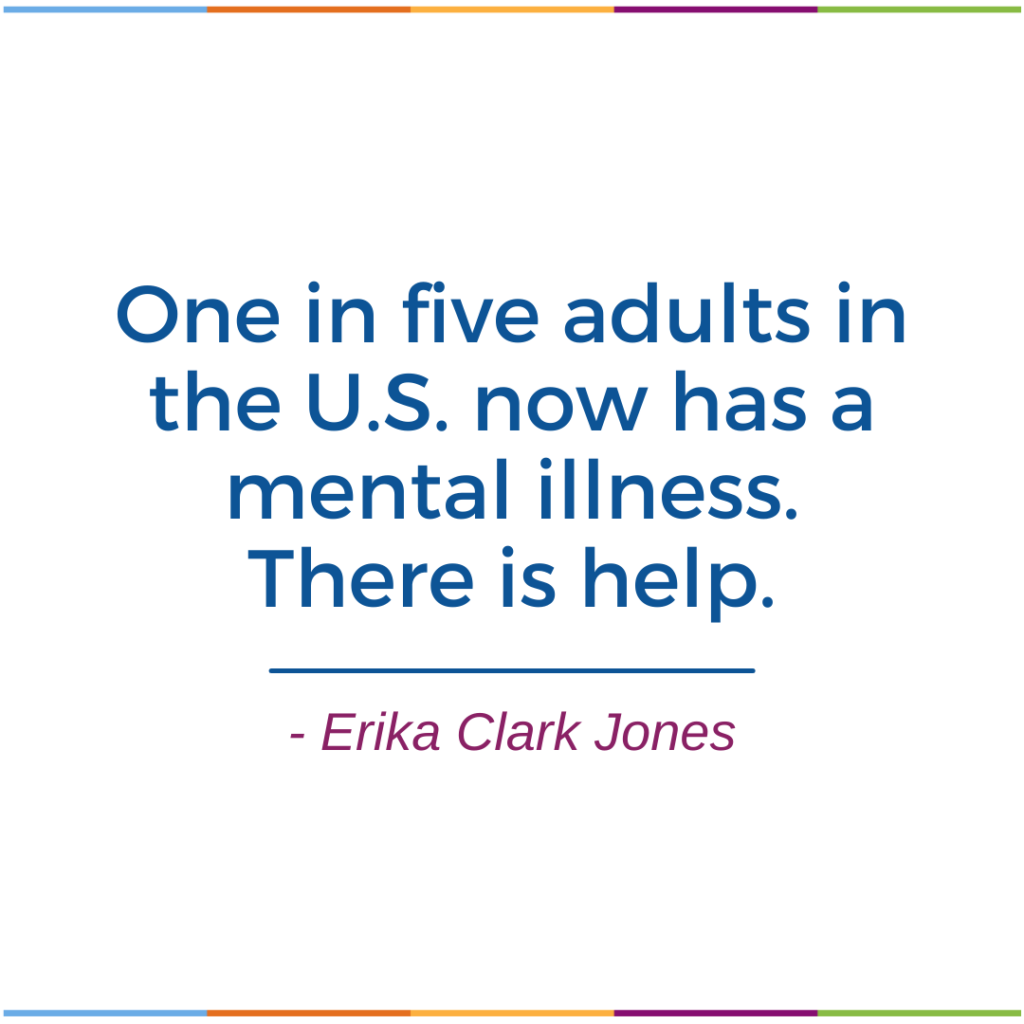We live in extraordinary times, and the emotional costs of the dual pandemic — COVID-19 and systemic racism — have ongoing repercussions on the well-being of many in our community.
Mental Health Month is particularly relevant this year for reasons that go well beyond the initial purpose to educate and reduce stigma surrounding mental illness.
We have seen the headlines warning of the pending mental health crisis, but in many ways the pandemic just served to shine a light on and exacerbate what was already there.
According to the Substance Abuse and Mental Health Services Administration, 1 in 5 adults in the United States has a mental illness — and that was before the pandemic began.
The isolation, loss and health concerns for individuals and families because of the COVID-19 outbreak has caused even more stress and anxiety. Recently, Mental Health America reported that nationally there has been a 93% increase in anxiety screenings and a 62% increase in depression screenings as compared to 2019.
While the pandemic is affecting everyone in our community, it is hitting hardest those who already struggle with mental illness or addiction.
For people of color, there is the added physical and emotional toll of systemic racism.
There is a clear intersection between physical health and mental health. Underlying trauma from facing racism as a person of color has long-term impacts on both physical and mental health. Mental Health America has defined racism itself is a mental health issue.
There is a tremendous need for support right now. But there is still a stigma that asking for help is a sign of weakness. It is up to all of us to change that perception. Taking care of our mental health makes us stronger.
During difficult times, it is important to maintain the stamina to continue the journey.
Our community is fortunate to have a strong network of 33 mental health and addiction services agencies to provide help to anyone in need — regardless of ability to pay.
This is the ADAMH Network of Care — funded through the generosity of Franklin County taxpayers — to provide much-needed services to a growing vulnerable population.
There also is support available to every Franklin County resident, every day through a single phone call. Anyone in Franklin County can call 614-276-CARE (2273) for emotional support and crisis services. This line is staffed by licensed counselors 24 hours a day, seven days a week.
The challenge is knowing when to seek out help. I hear so many stories of personal struggle not only in my professional life, but through family members and friends. It is OK not to be OK — especially now, during this most challenging time. Talking to someone can help.
In addition, there are steps we all can take to help build resiliency.
Find safe ways to stay connected with family and friends. Explore what brings you joy — that connection to a higher purpose, and finally, and most importantly, give yourself permission to grieve.

